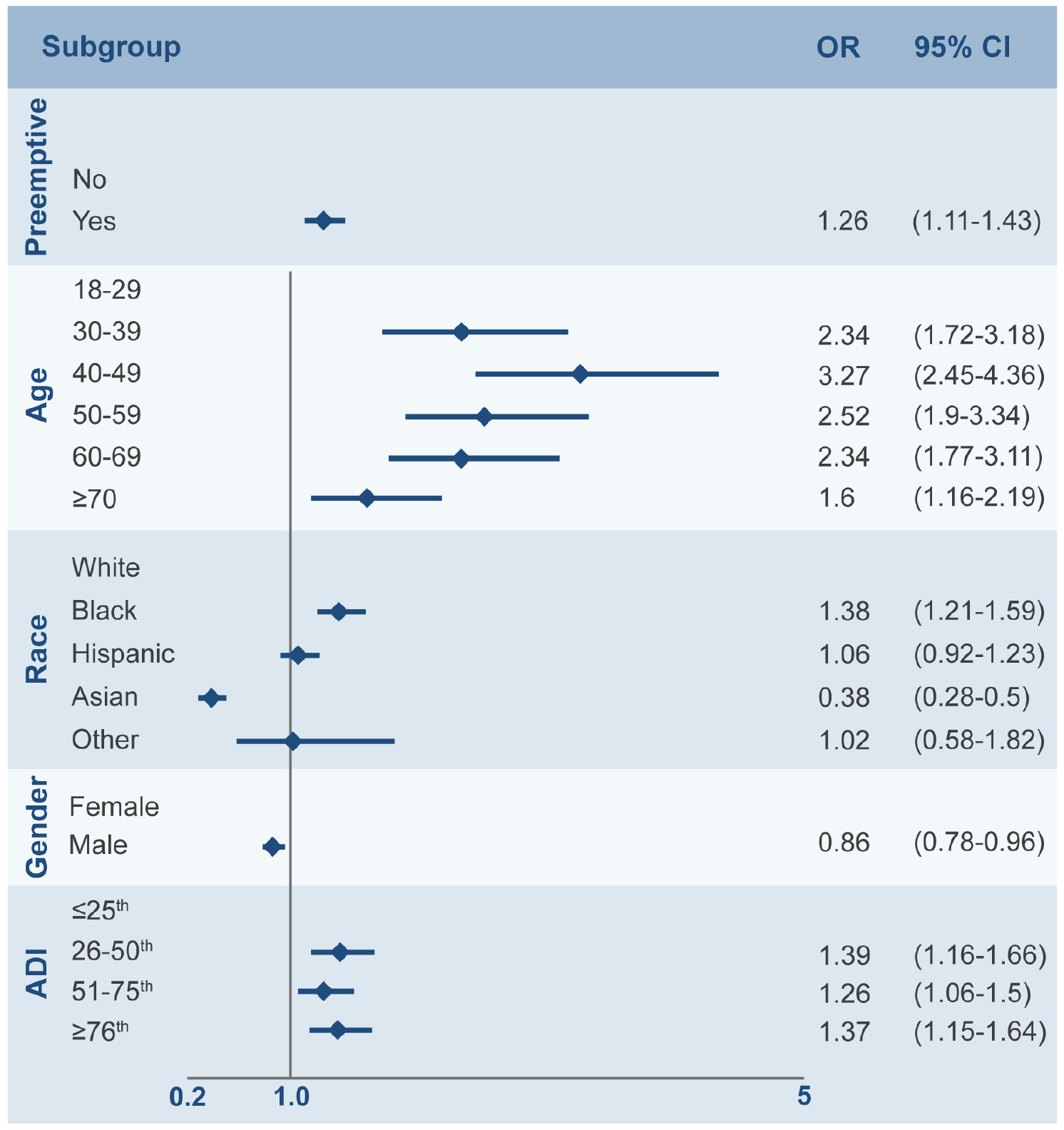Assessing patient-level predictors of obesity for kidney patients referred for pretransplant evaluation
Terri Menser1,2, Mark J Hobeika2, Enshou Hsu1, Janice R Wilson1, Amy D Waterman2, Stephanie G Yi2, Richard J Knight2, A. Osama Gaber2, Linda W Moore2.
1Center for Outcomes Research, Houston Methodist, Houston, TX, United States; 2Department of Surgery, Houston Methodist, Houston, TX, United States
Introduction: Obesity not only negatively impacts post-transplant outcomes and eligibility for kidney transplantation (KT)1 but is also associated with negative outcomes for end stage kidney disease (ESKD) patients, generally. This study assesses the impact of social determinants of health (SDOH) on the likelihood of obesity at time of referral for evaluation for KT.
Methods: We examined single-center kidney patient referrals from 6/2016 to 5/2021 to assess potential differential obesity at referral controlling for relevant known SDOH factors, including: socio-economic status (SES)/poverty measured by the Area Deprivation Index (ADI; a proxy SES measure utilizing Census Block Group Data to define "Neighborhood")2 in addition to demographic factors and preemptive status (eg, patients seeking transplant referral prior to initiating renal replacement therapy). We used logistic regression to examine obesity at referral, defined as BMI>30, aligning with reconsiderations of KT BMI thresholds.3
Results: A total of 6129 participants were included in the study population; 60% (n=3674) were classified as obese (BMI>30). The model showed factors predictive of obesity at referral to include: increased ADI/poverty [OR: 1.39, p<0.0001; 1.26, p = 0.008; 1.37, p<0.0001, respectively], Black race (OR:1.38, p<0.0001), and preemptive status (OR: 1.26, p<0.0001). Asian patients were less likely to be obese, [OR: 0.38, p<0.0001].

Conclusion: With 60% of referred kidney patients presenting as obese, opportunities to intervene on nutrition, exercise, and wellness to target BMI in this population are essential to ensure that patients belowthe poverty level, Black patients, and preemptive patients have nutritional guidance while improving post-transplant outcomes.
References:
1 doi:10.1111/ajt.16196
2 https://www.neighborhoodatlas.medicine.wisc.edu/
3 https://www.consultant360.com/exclusive/consultant360/nephrology/study-reconsider-bmi-cutoff-kidney-transplants

right-click to download
